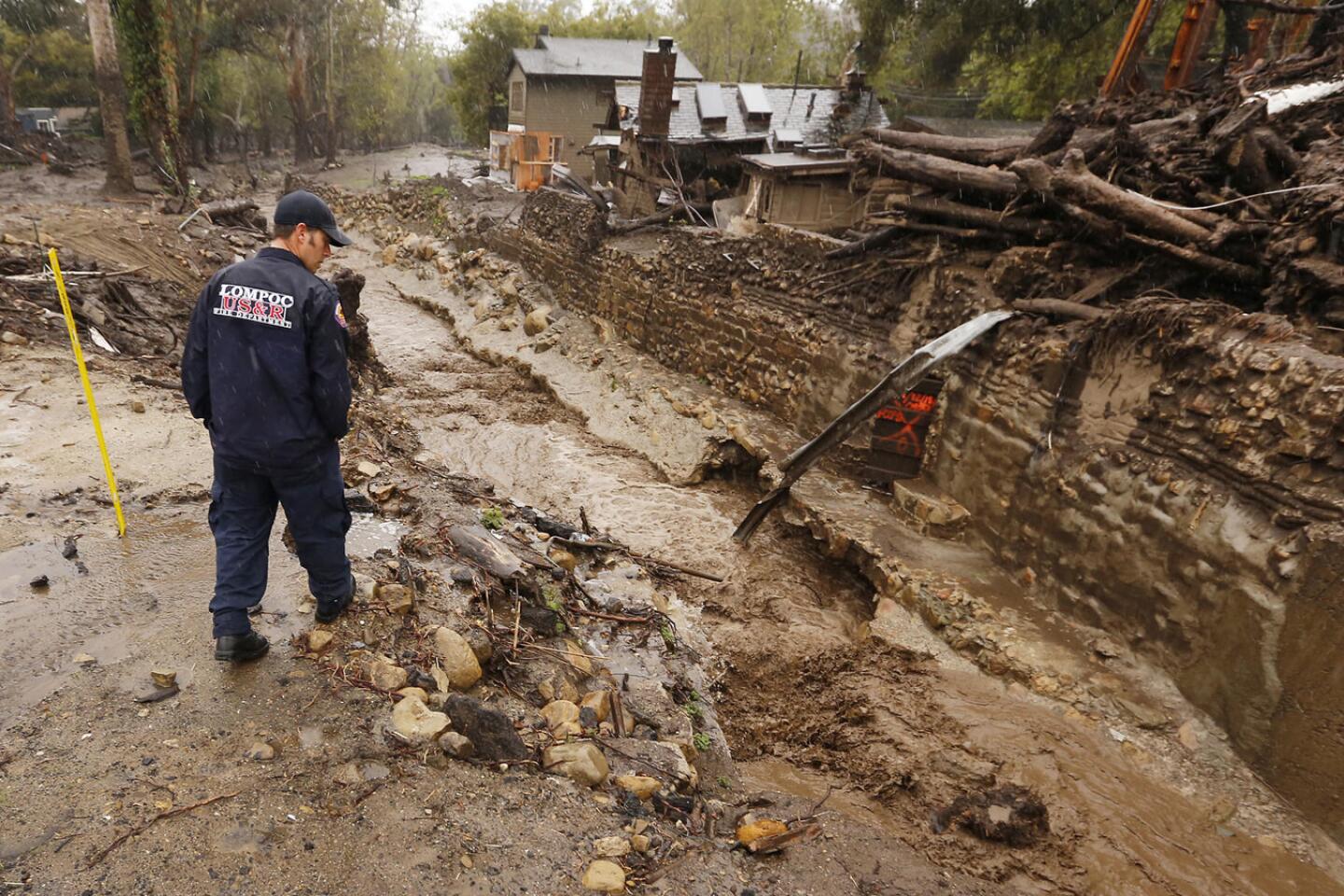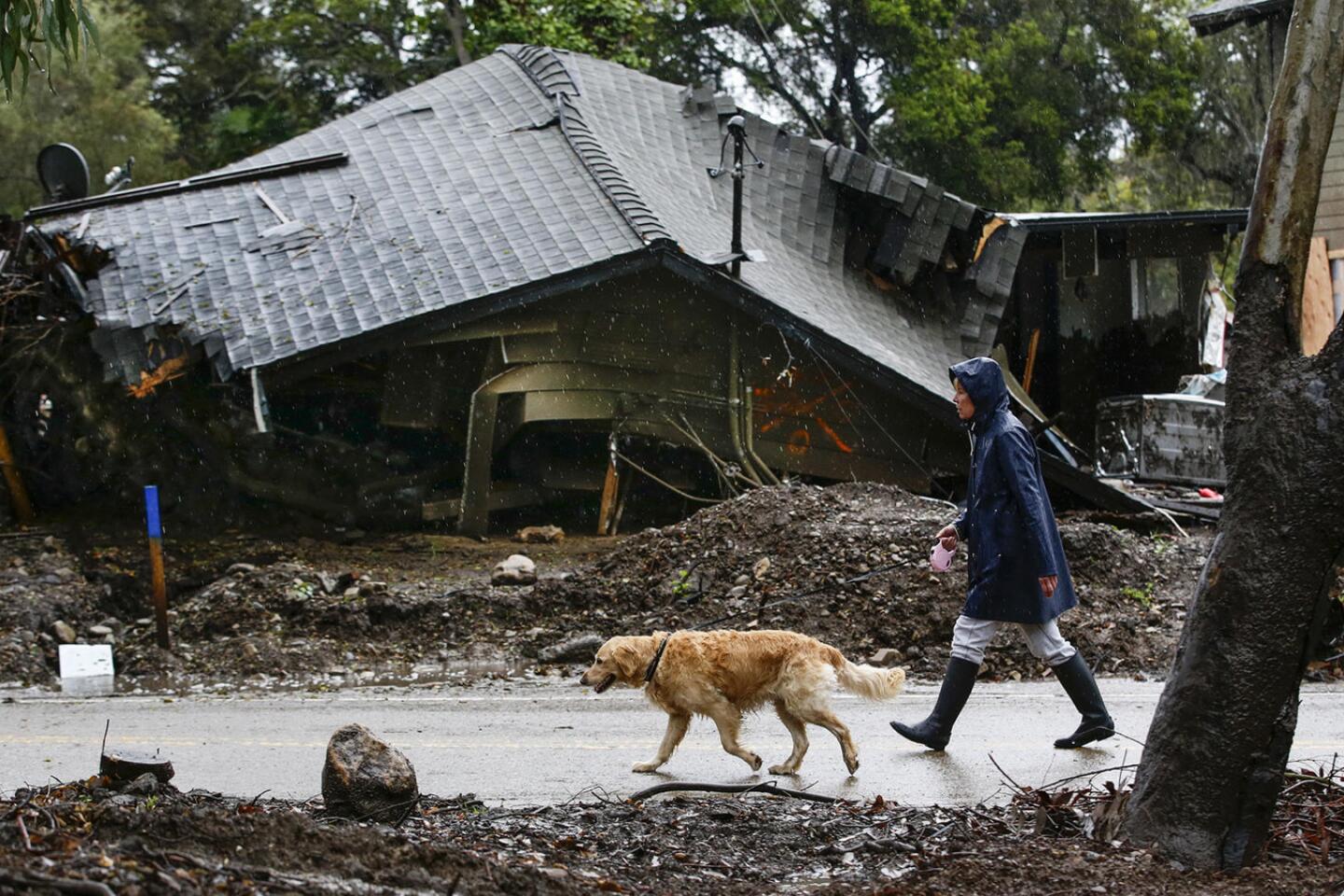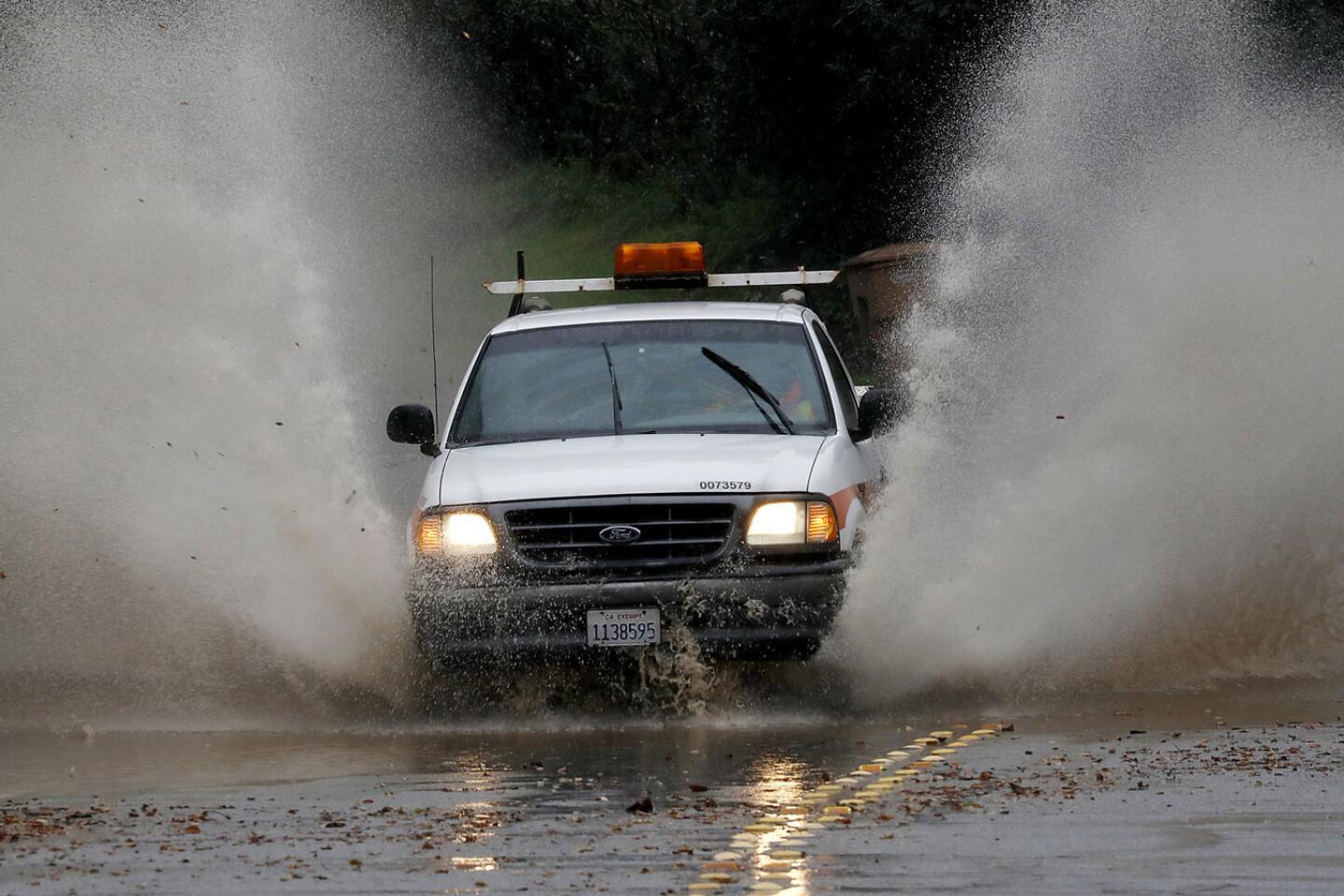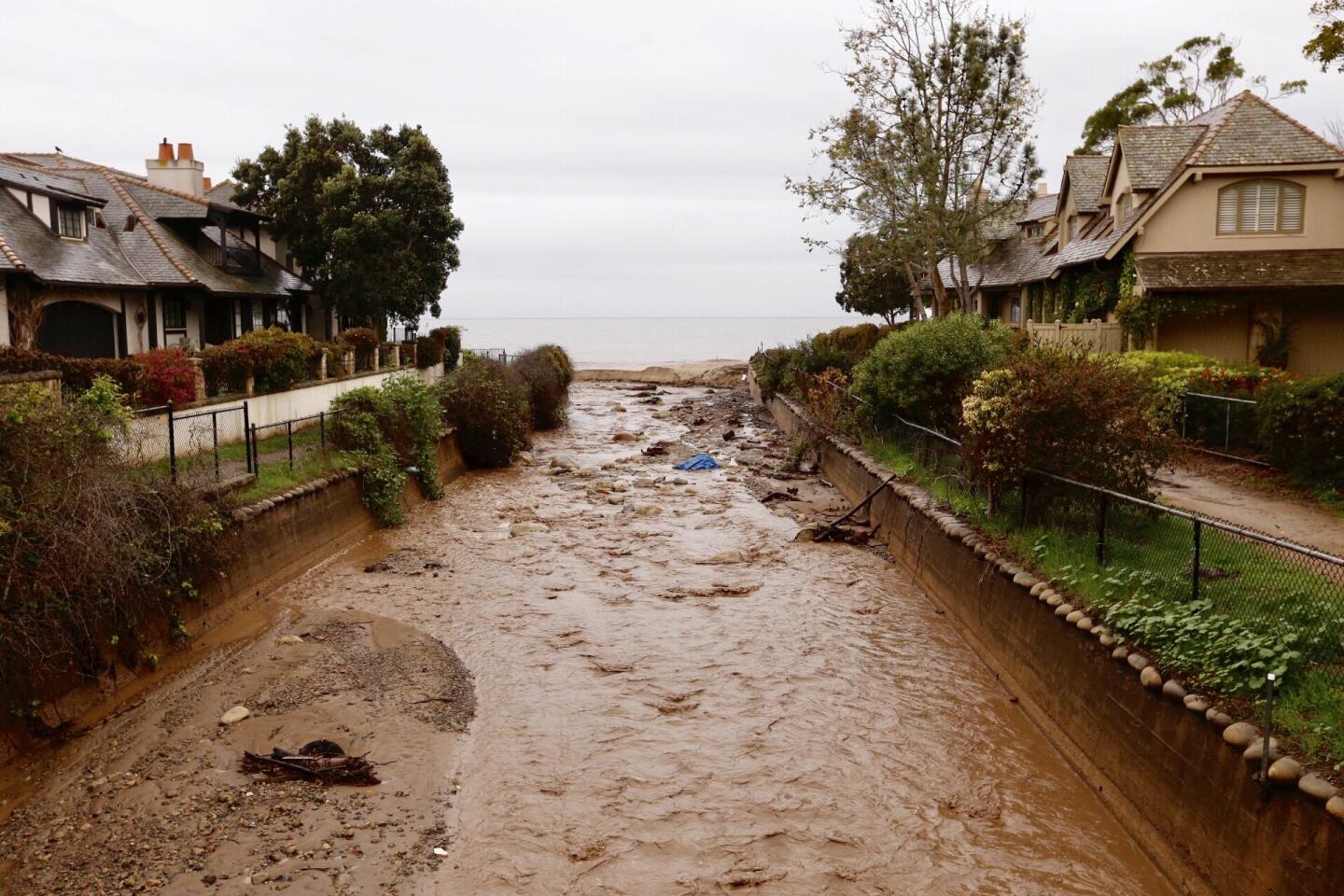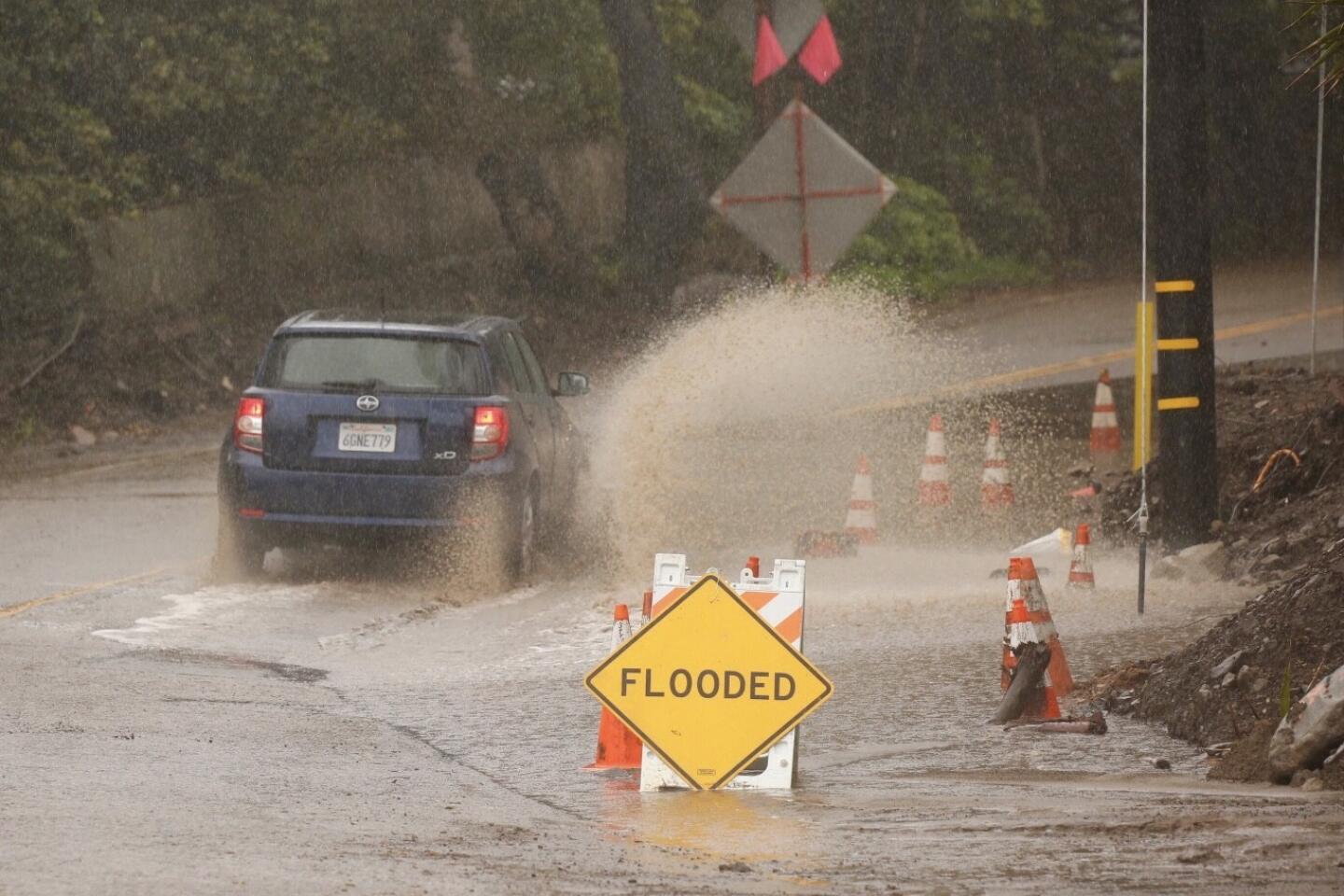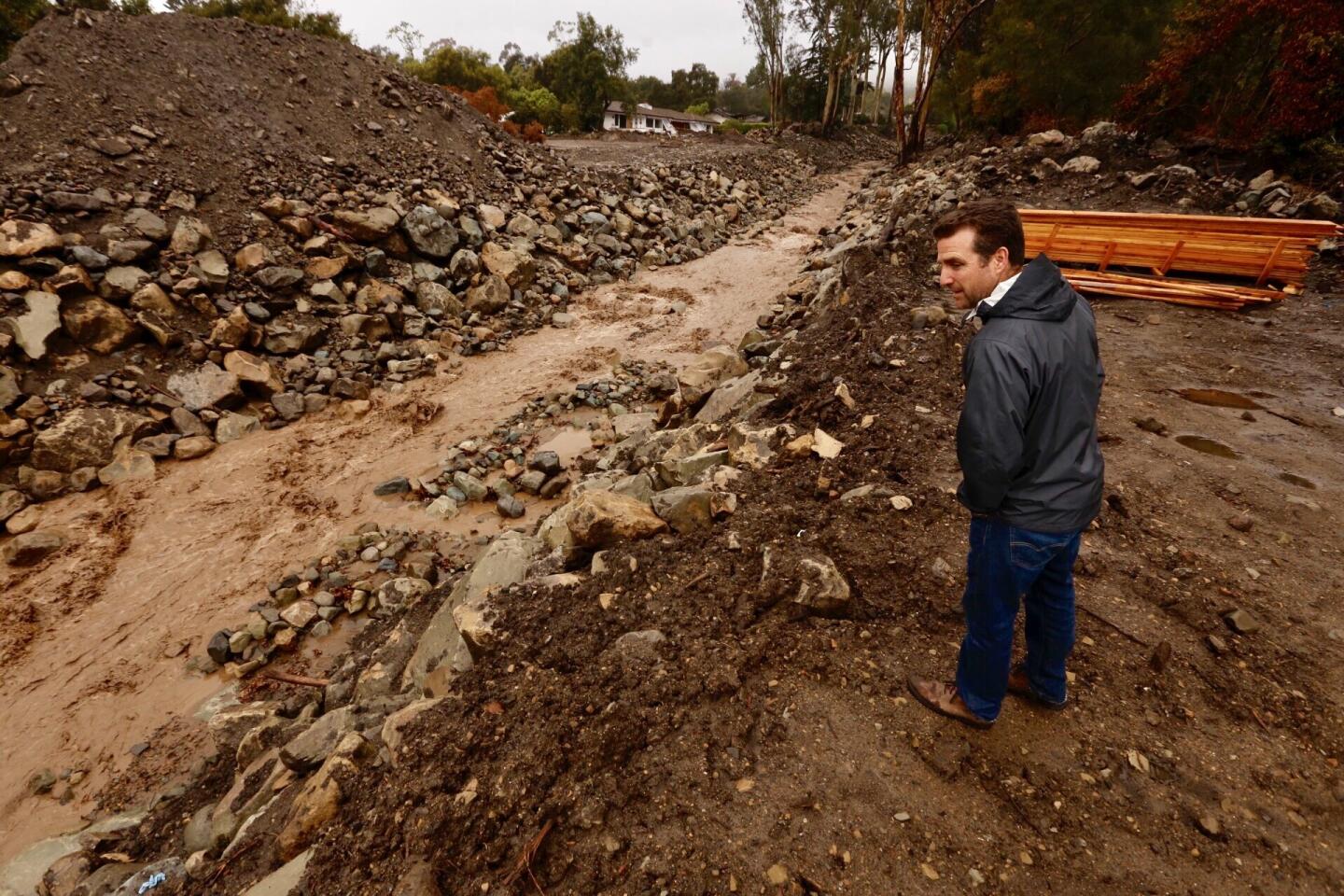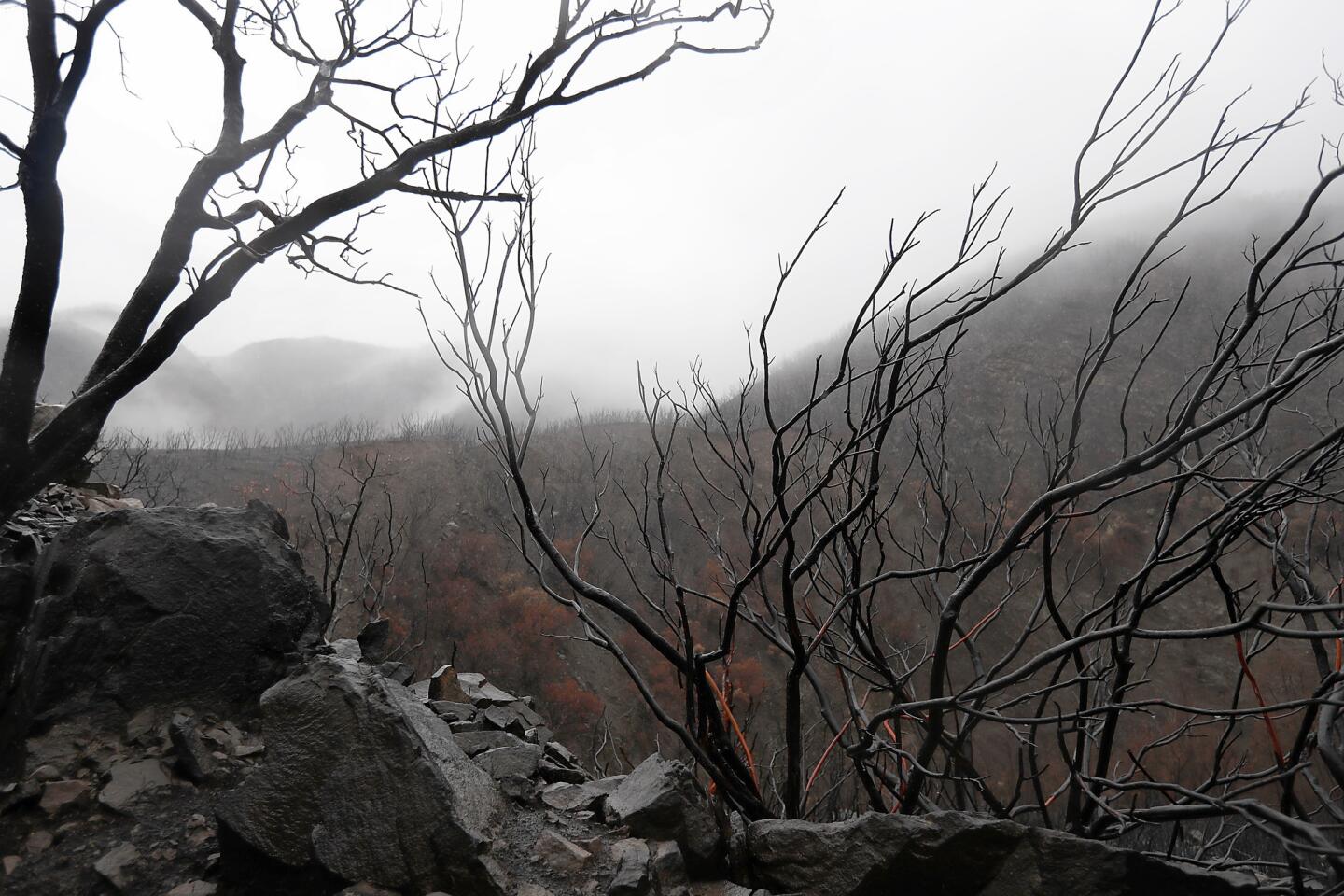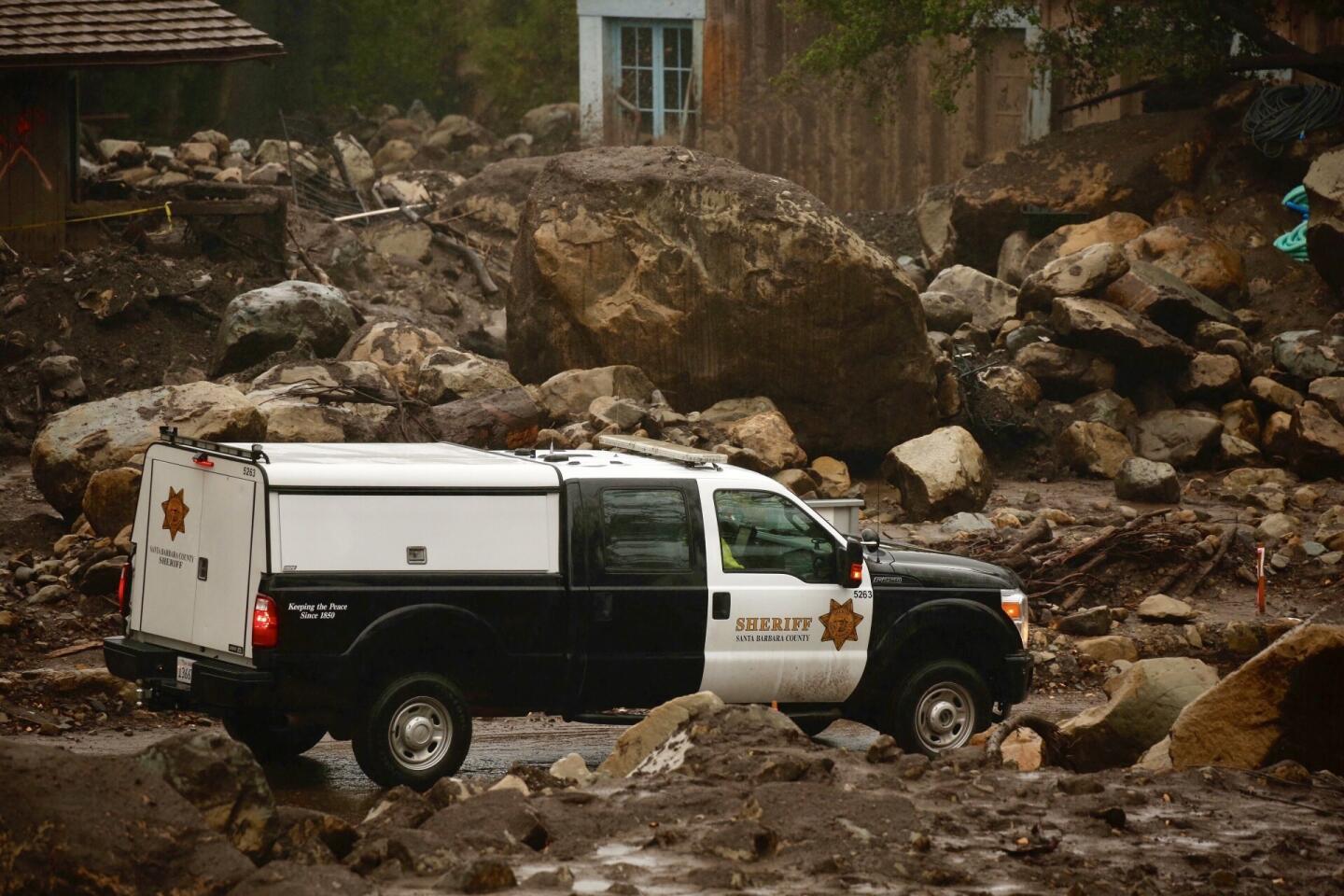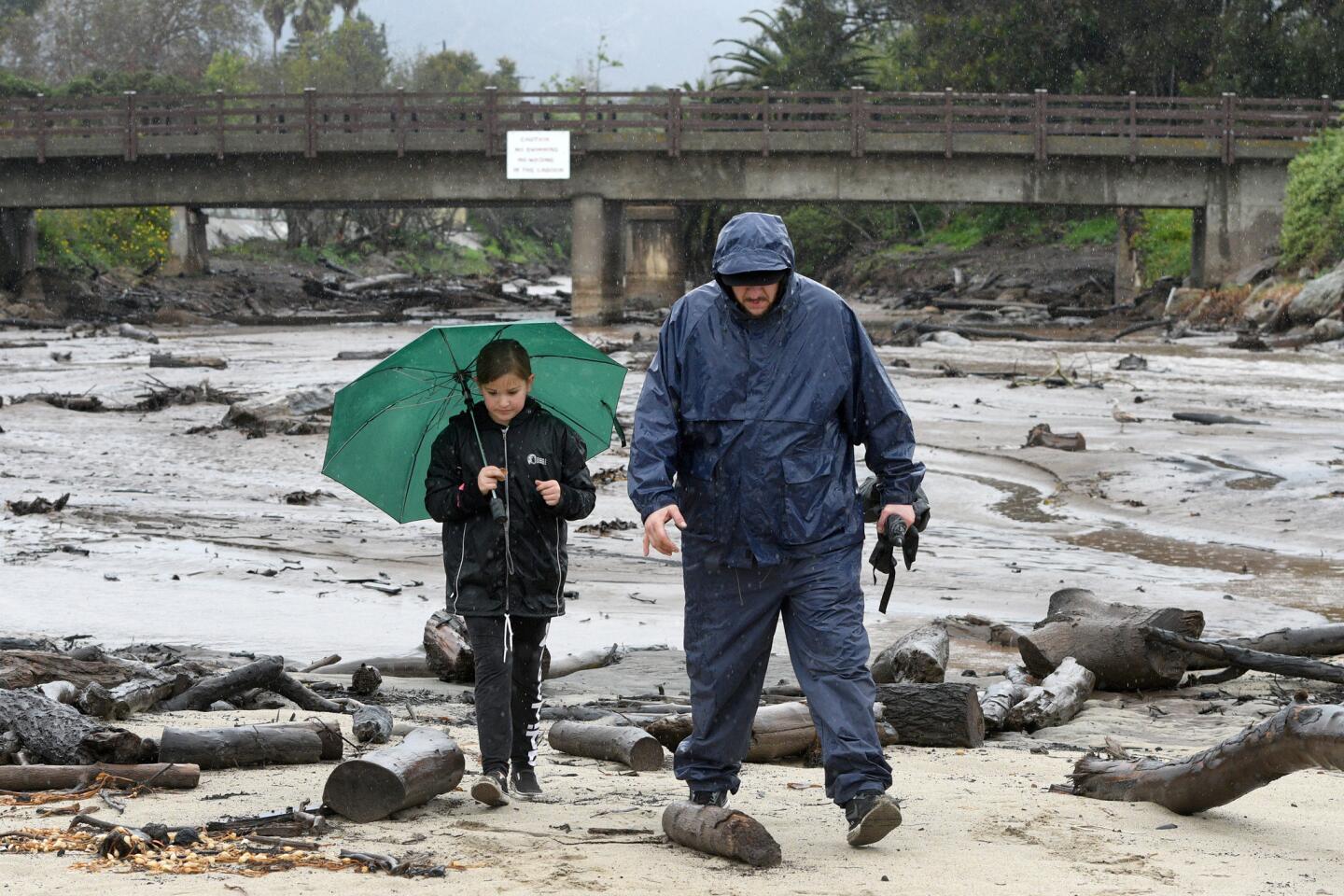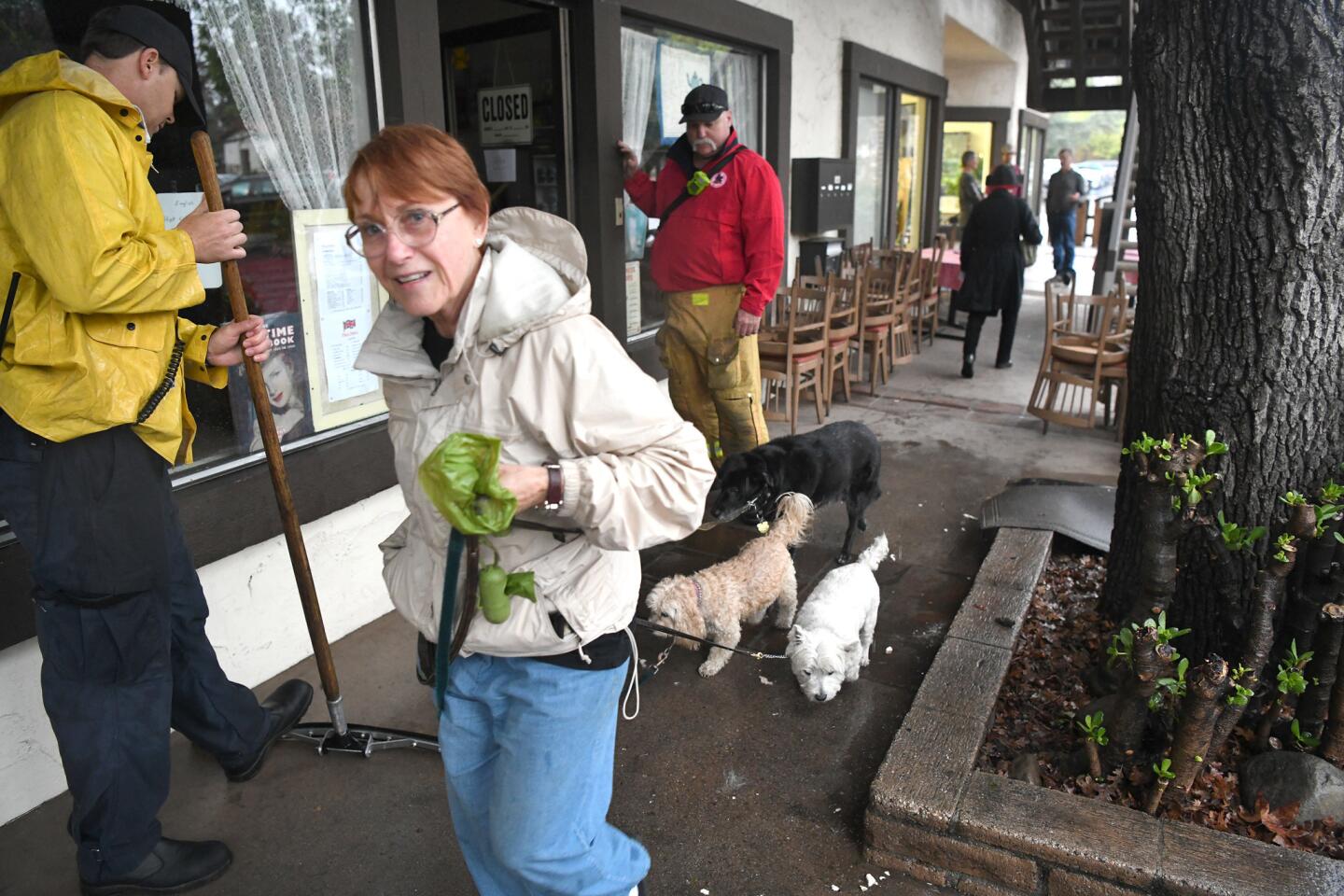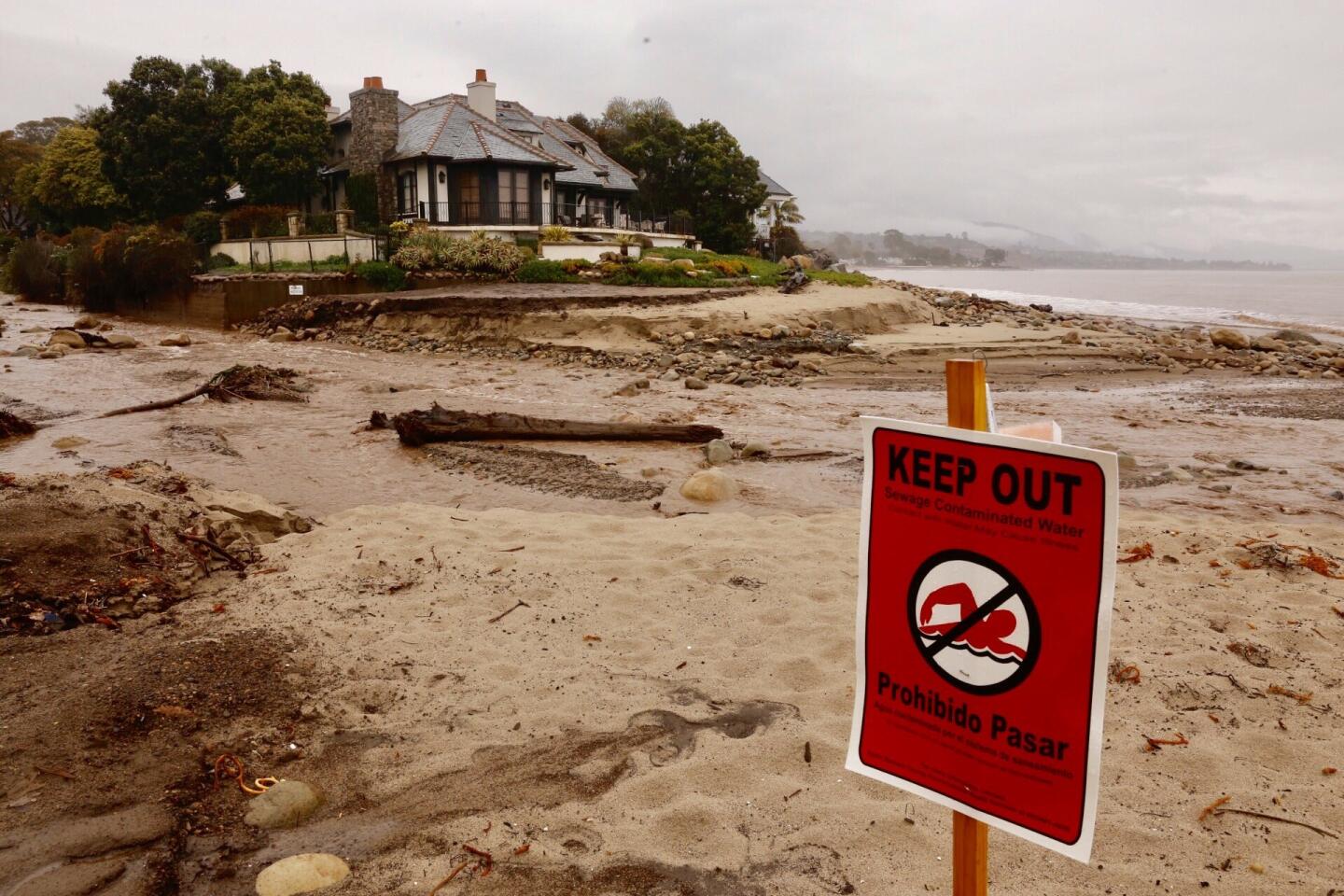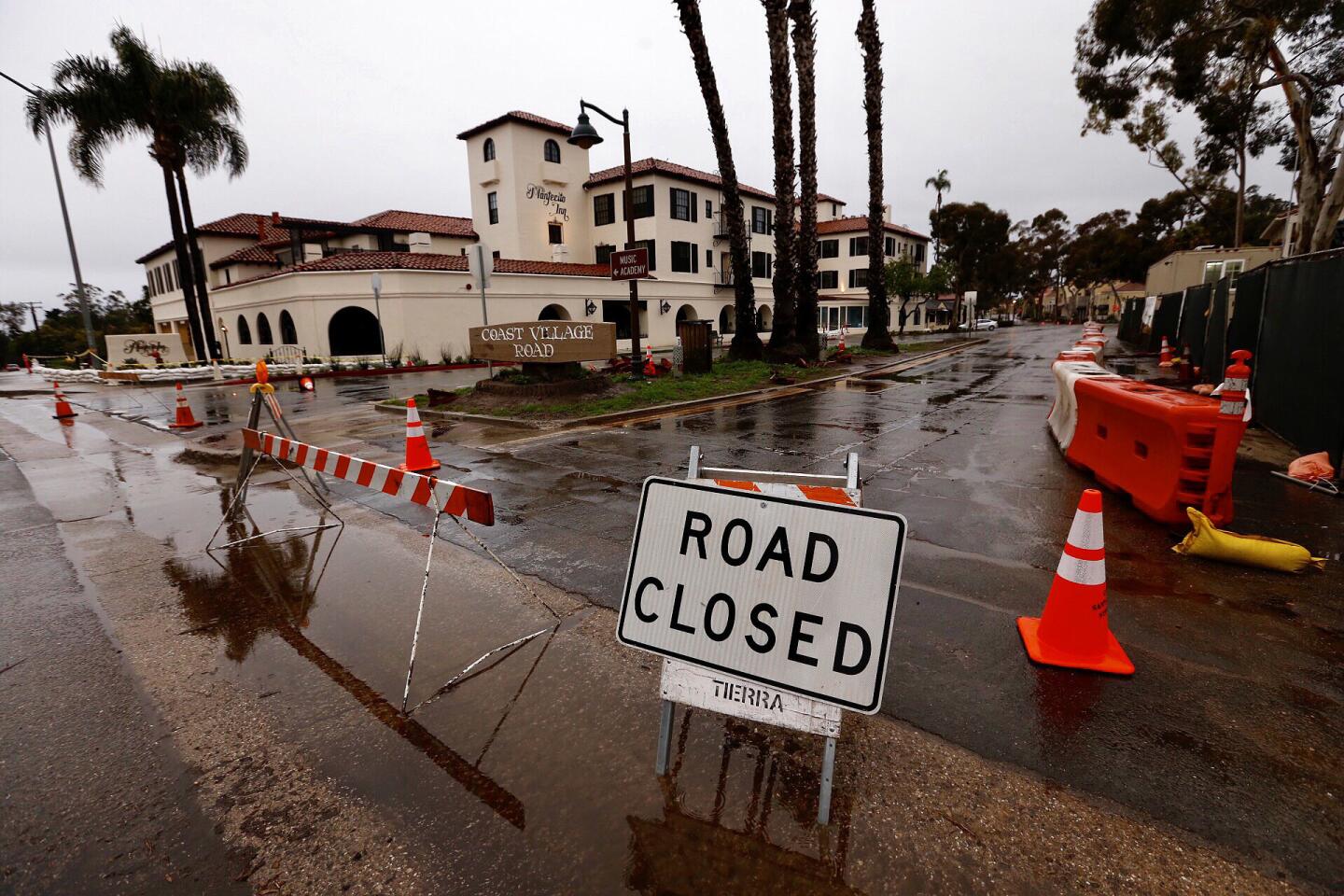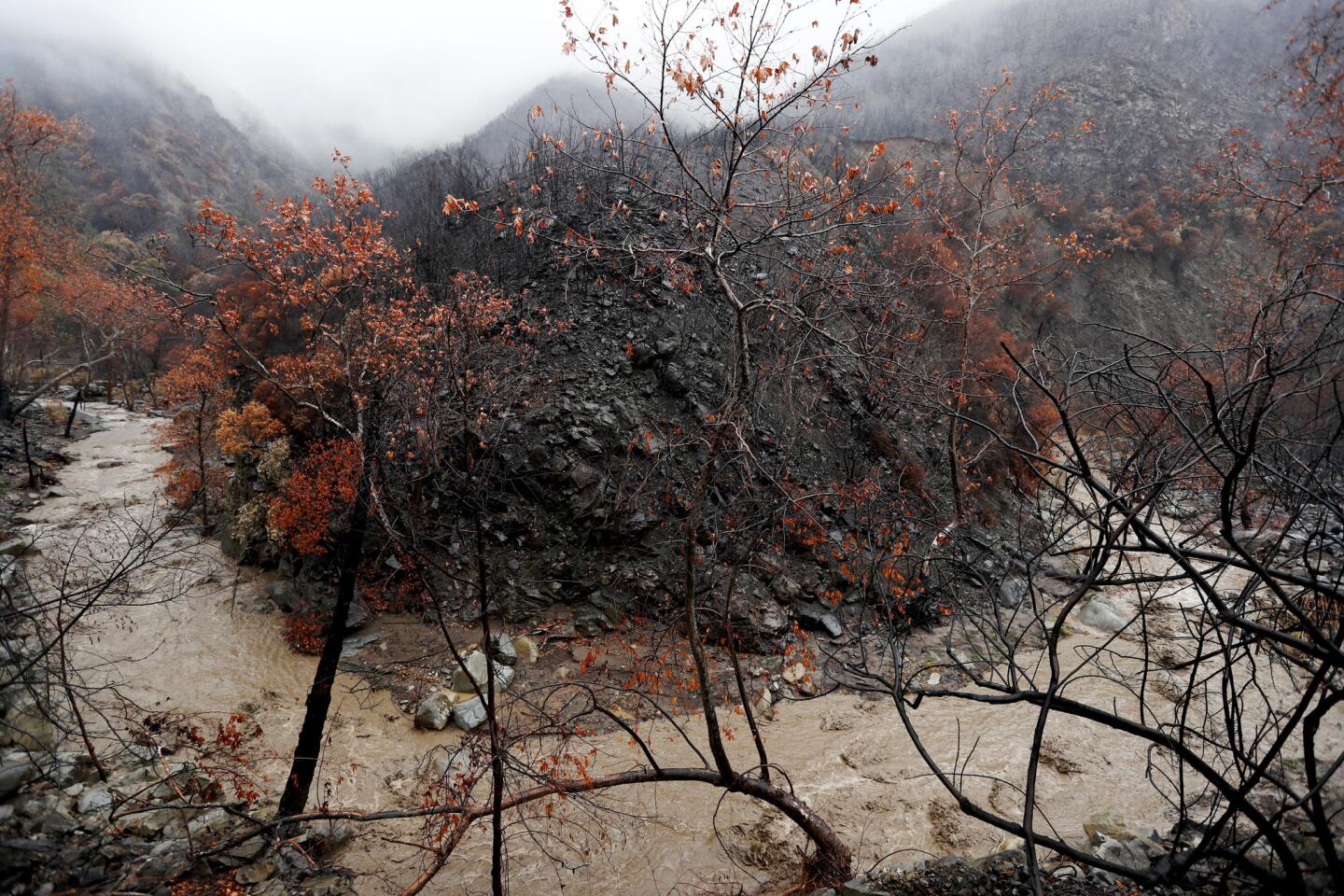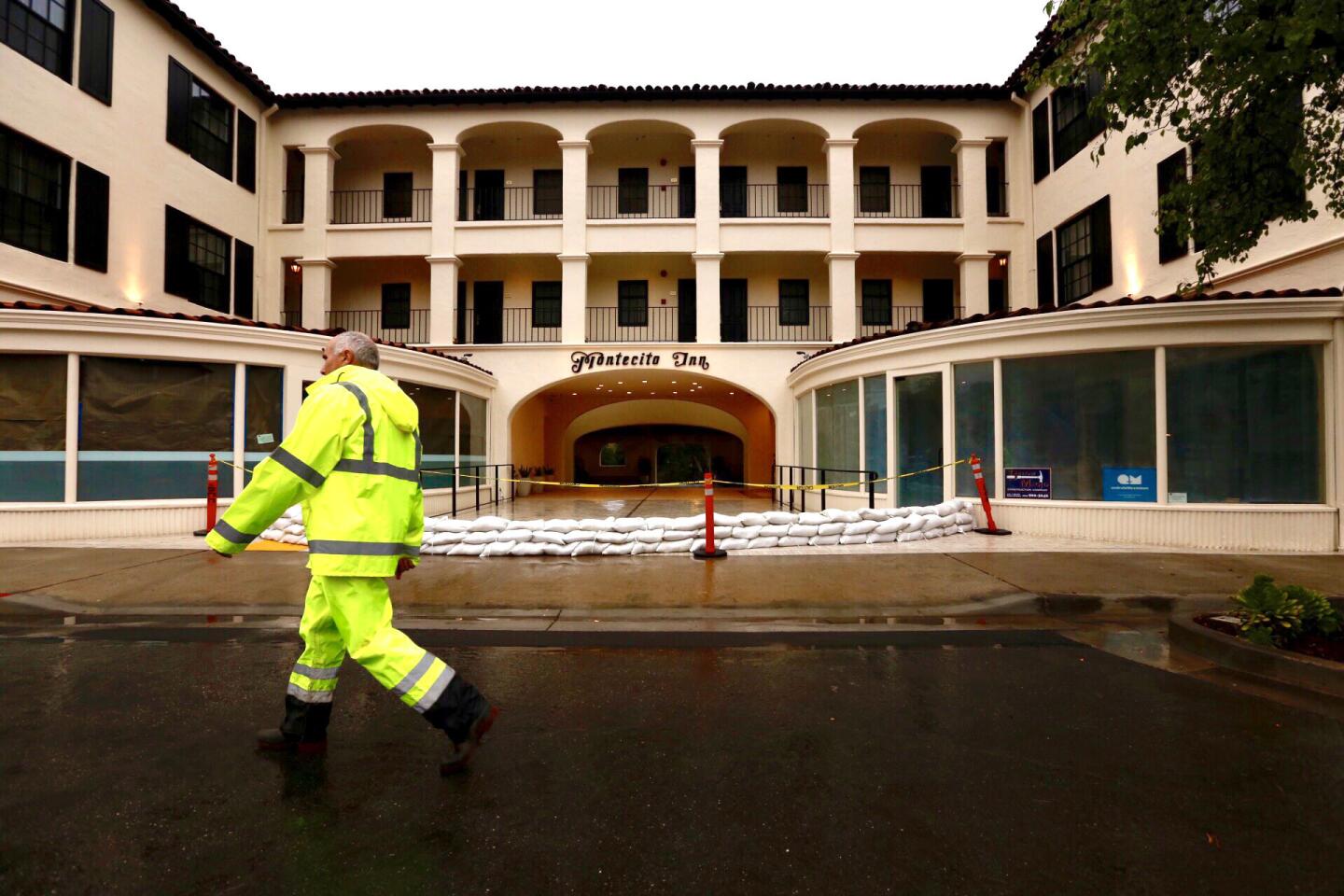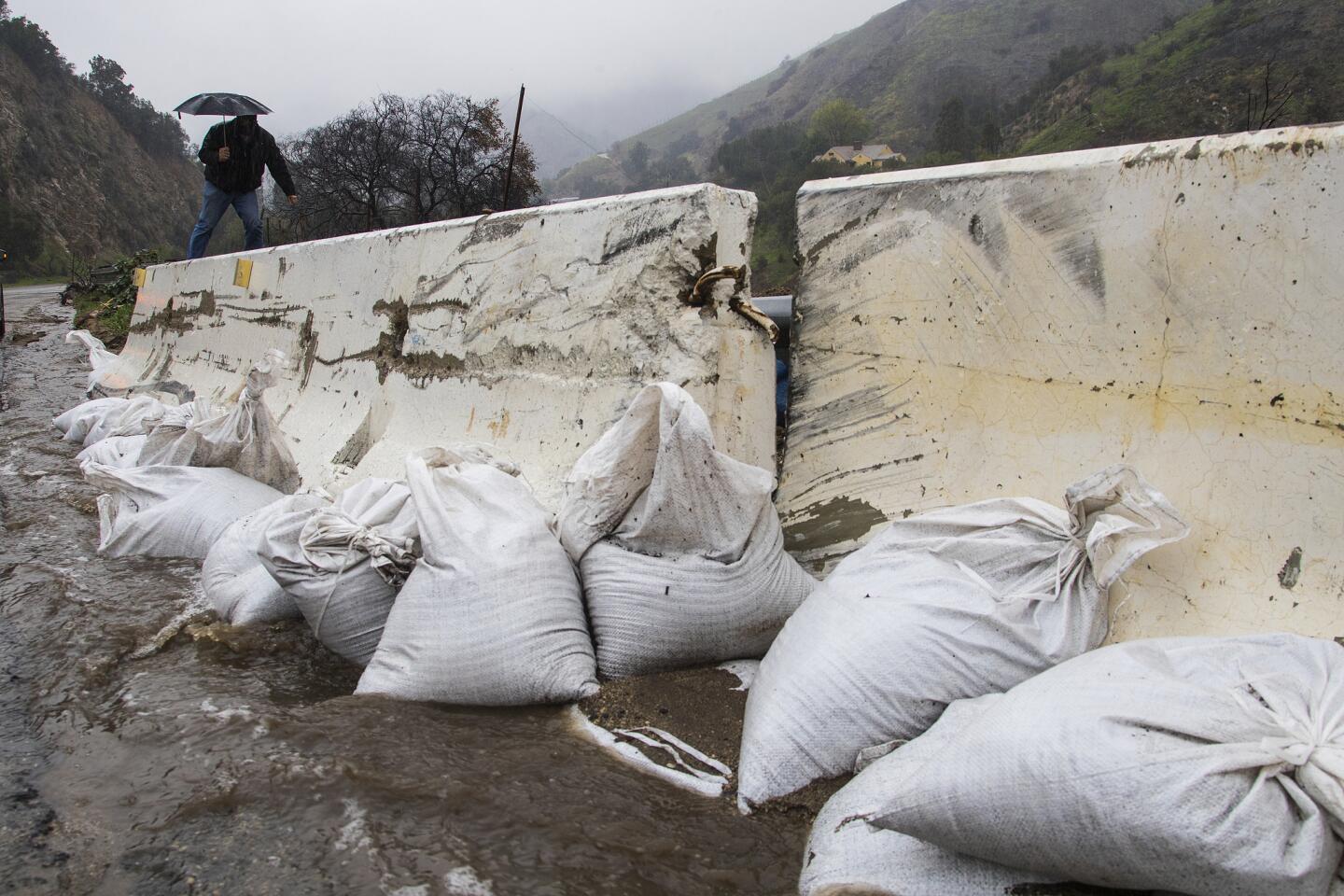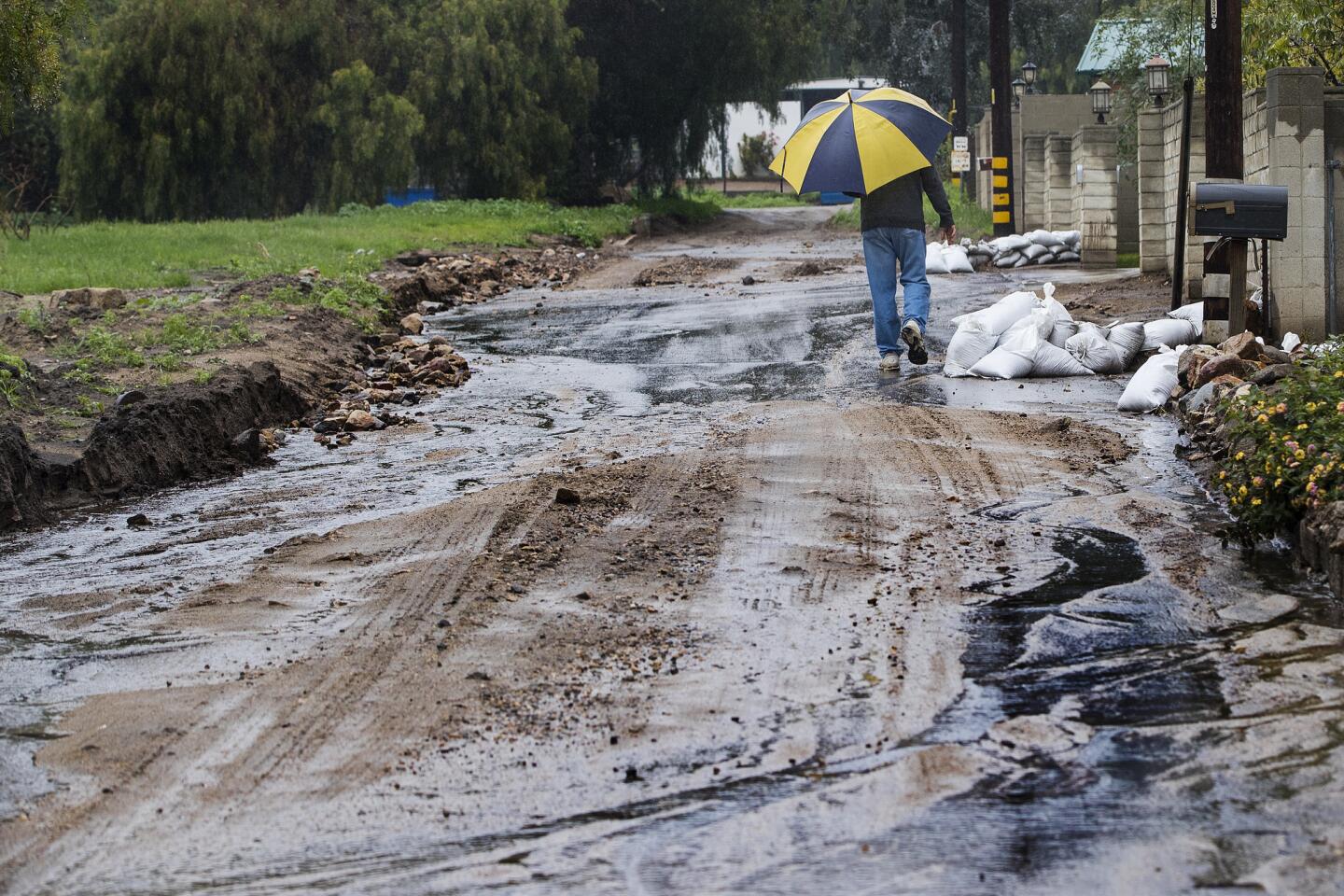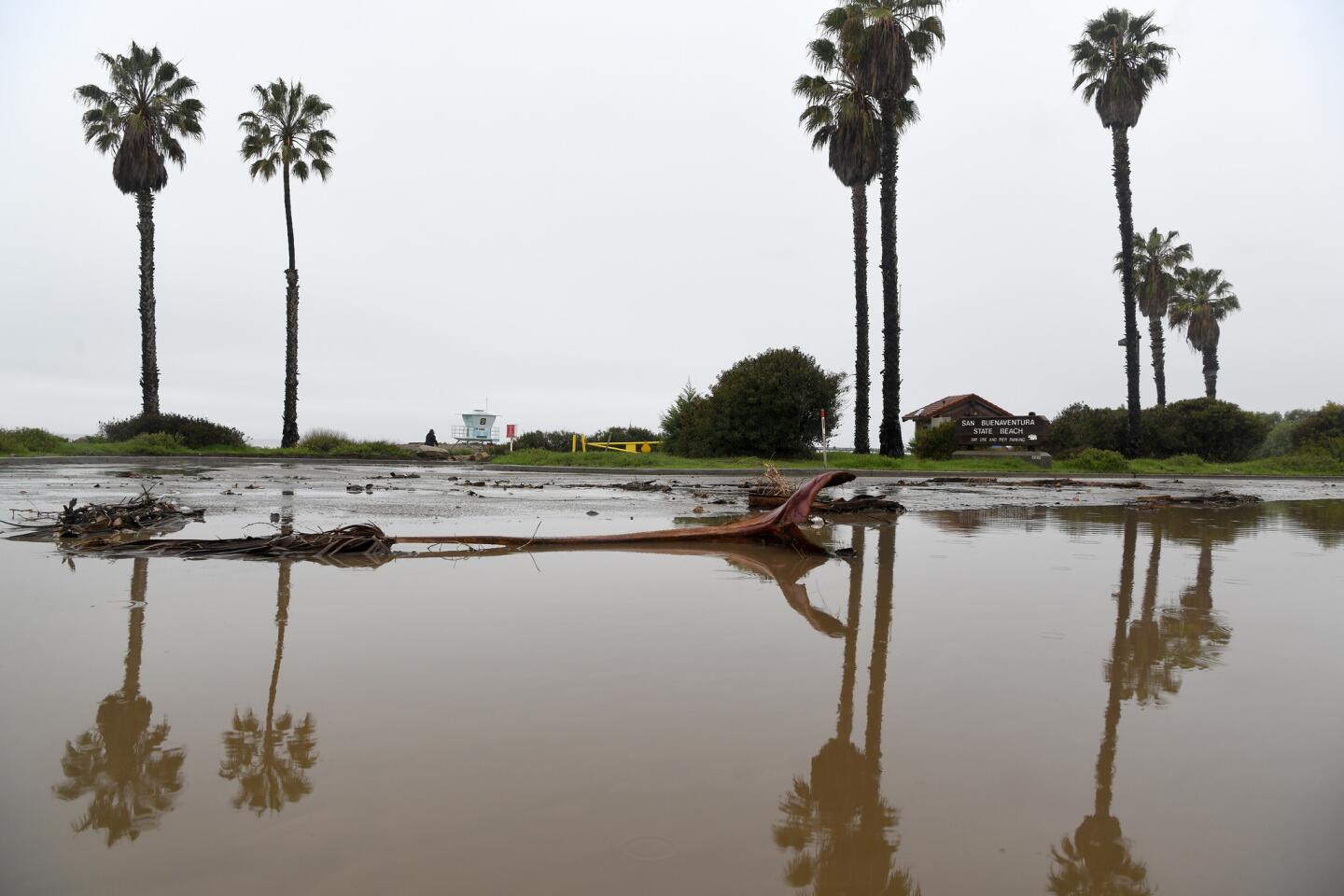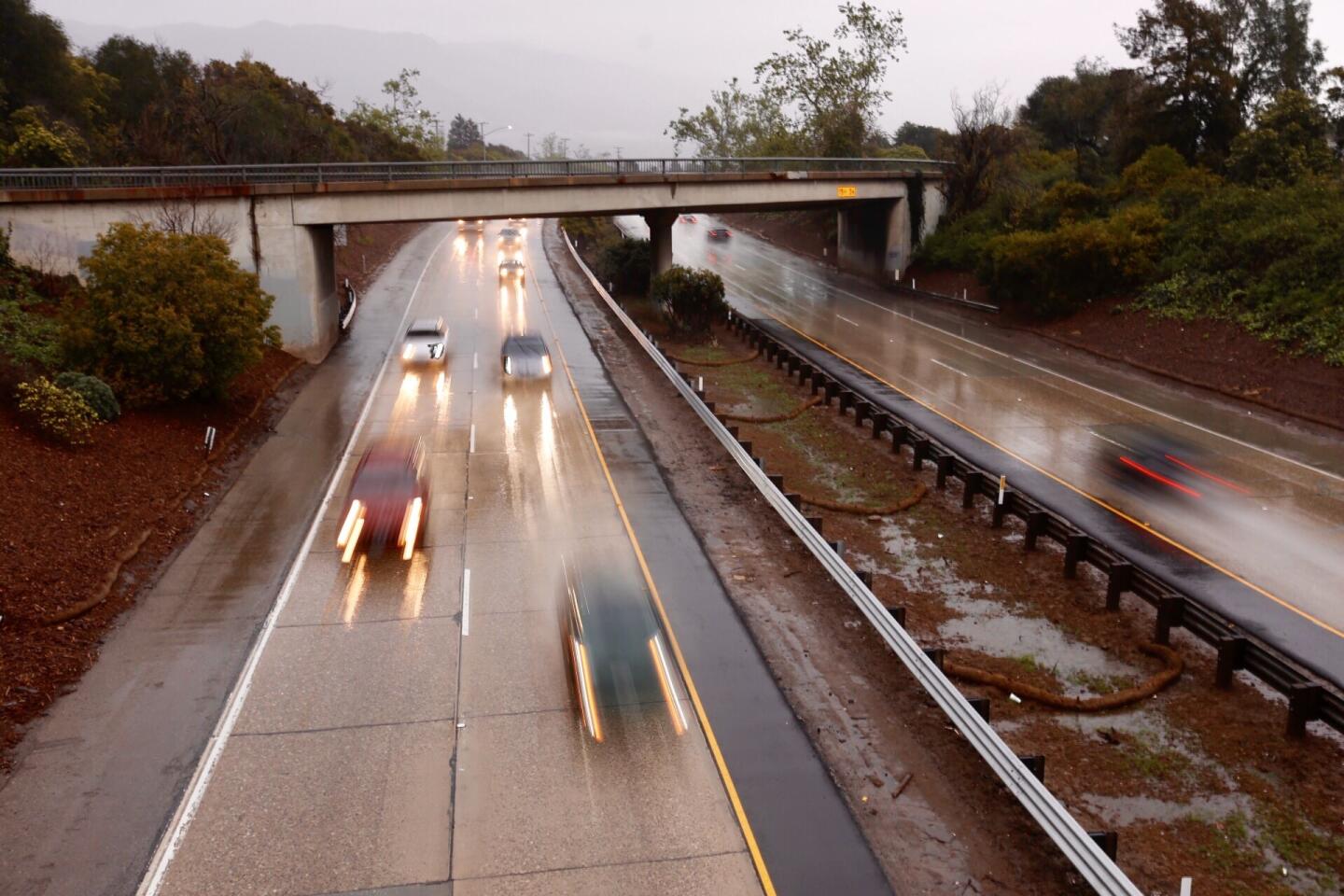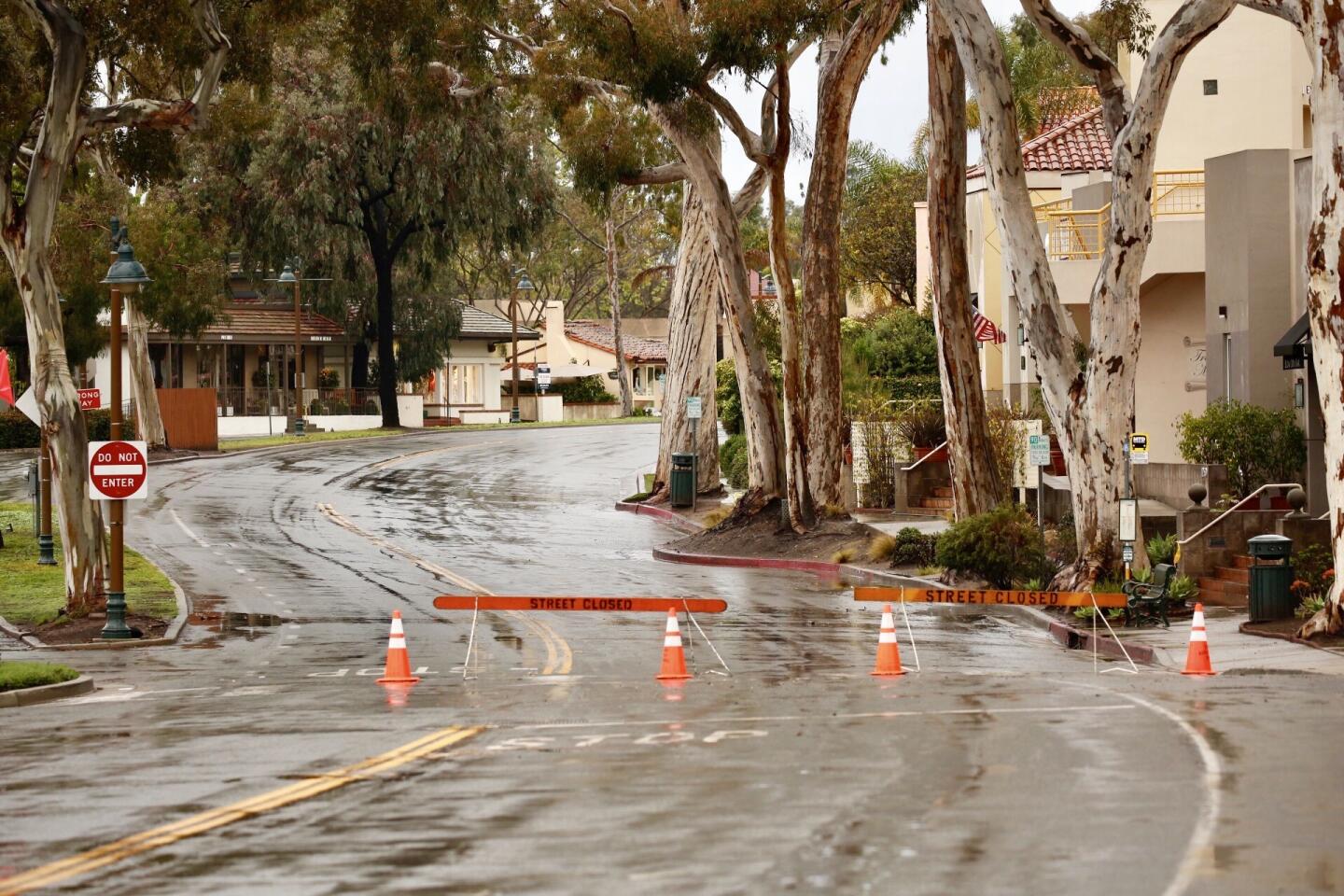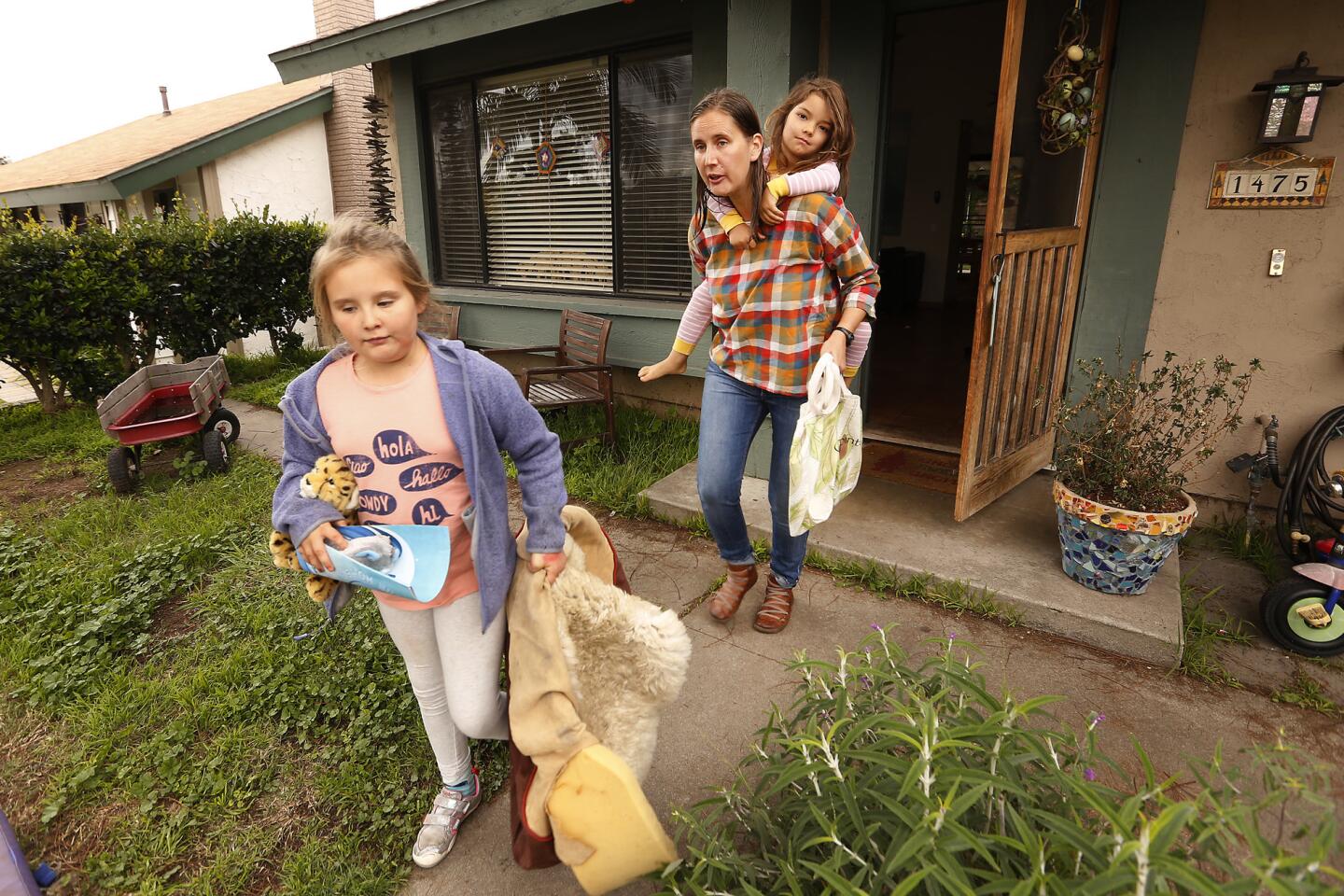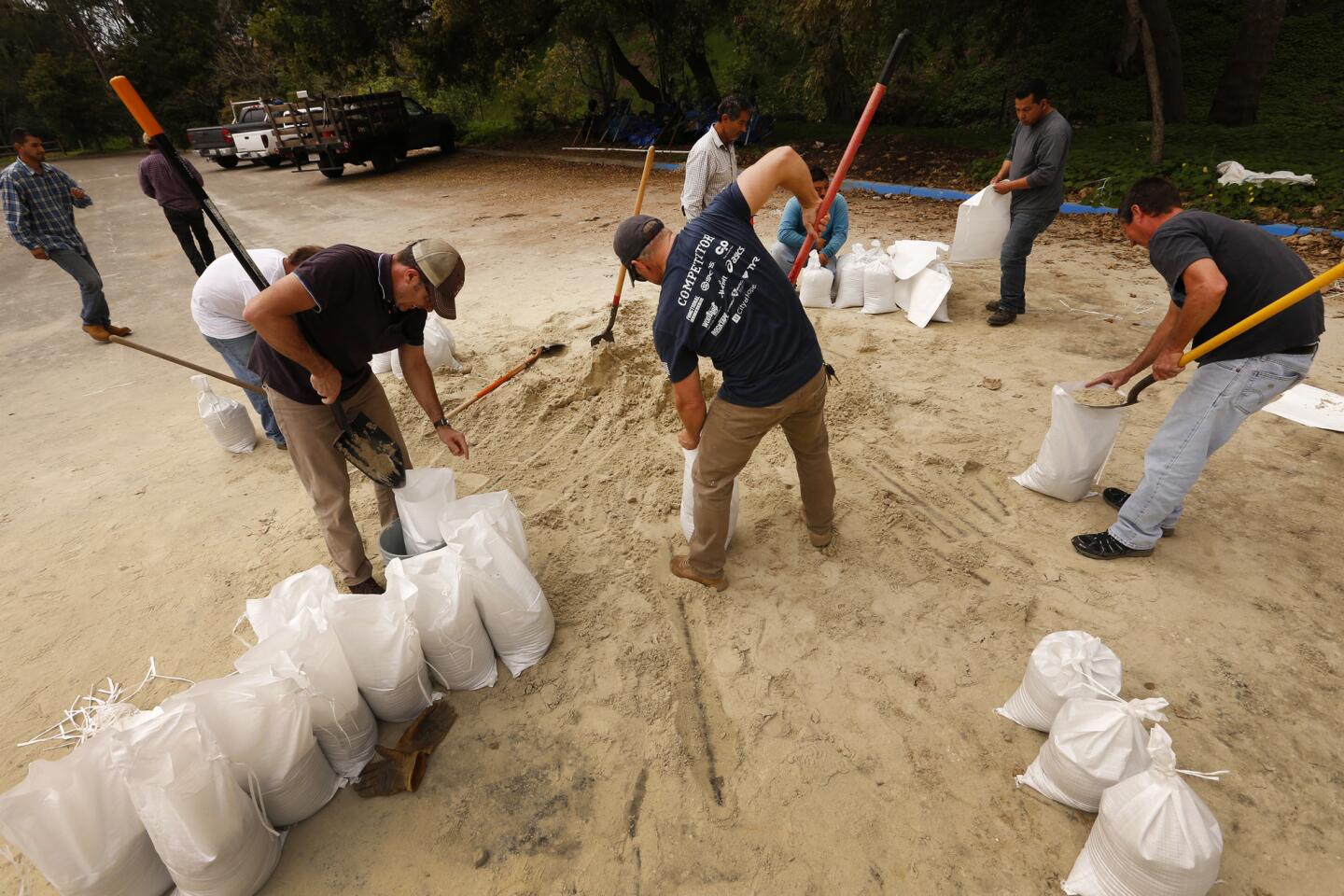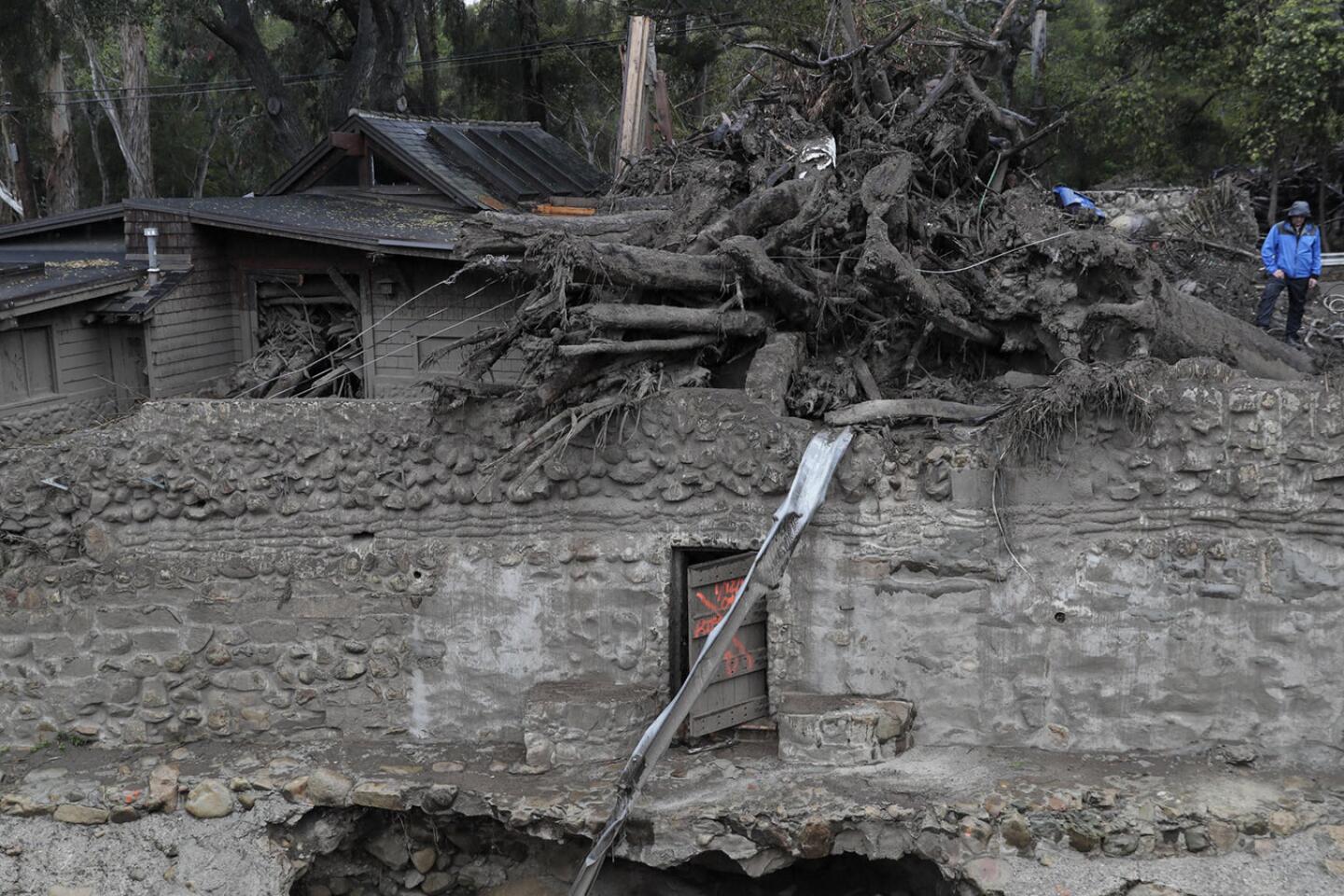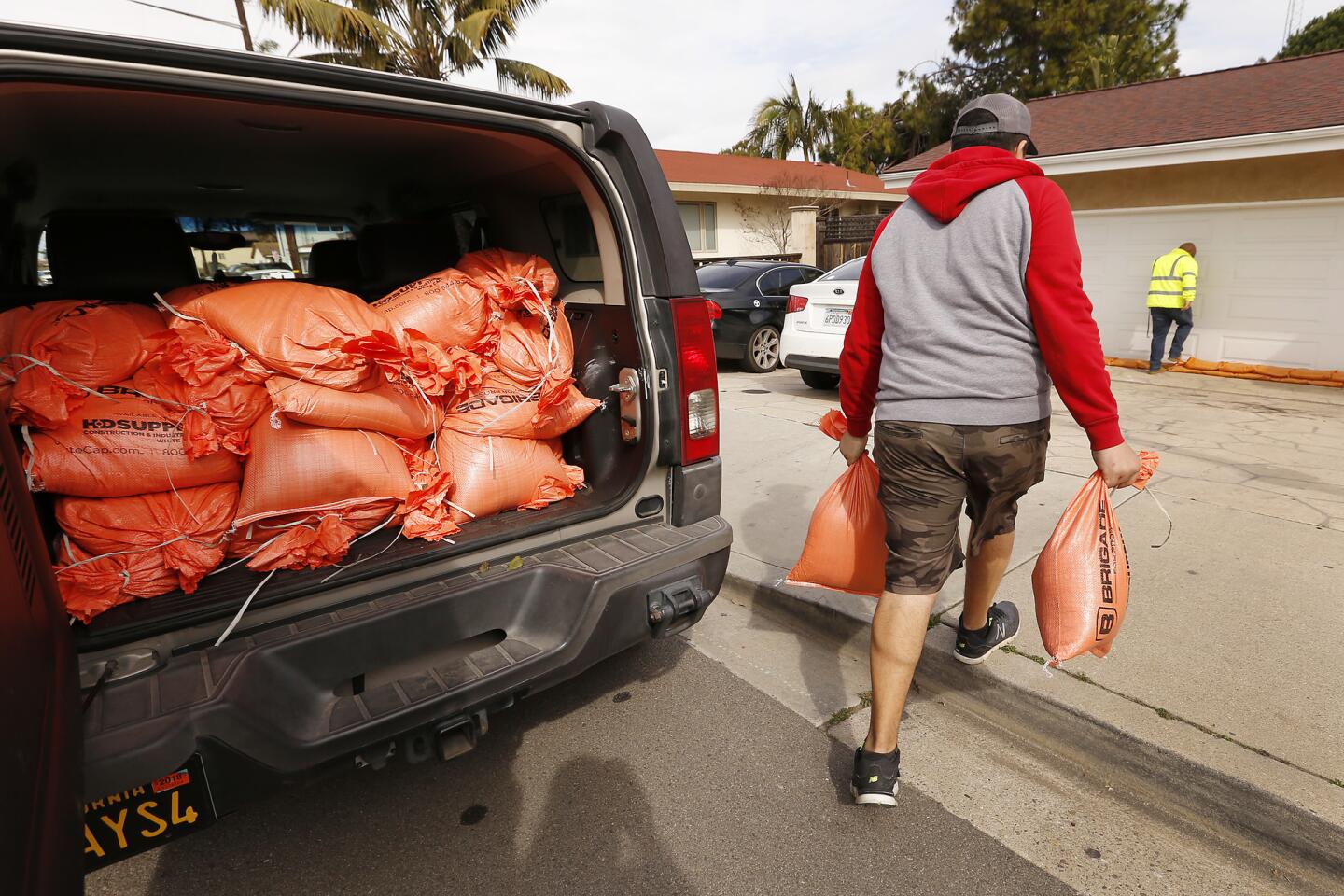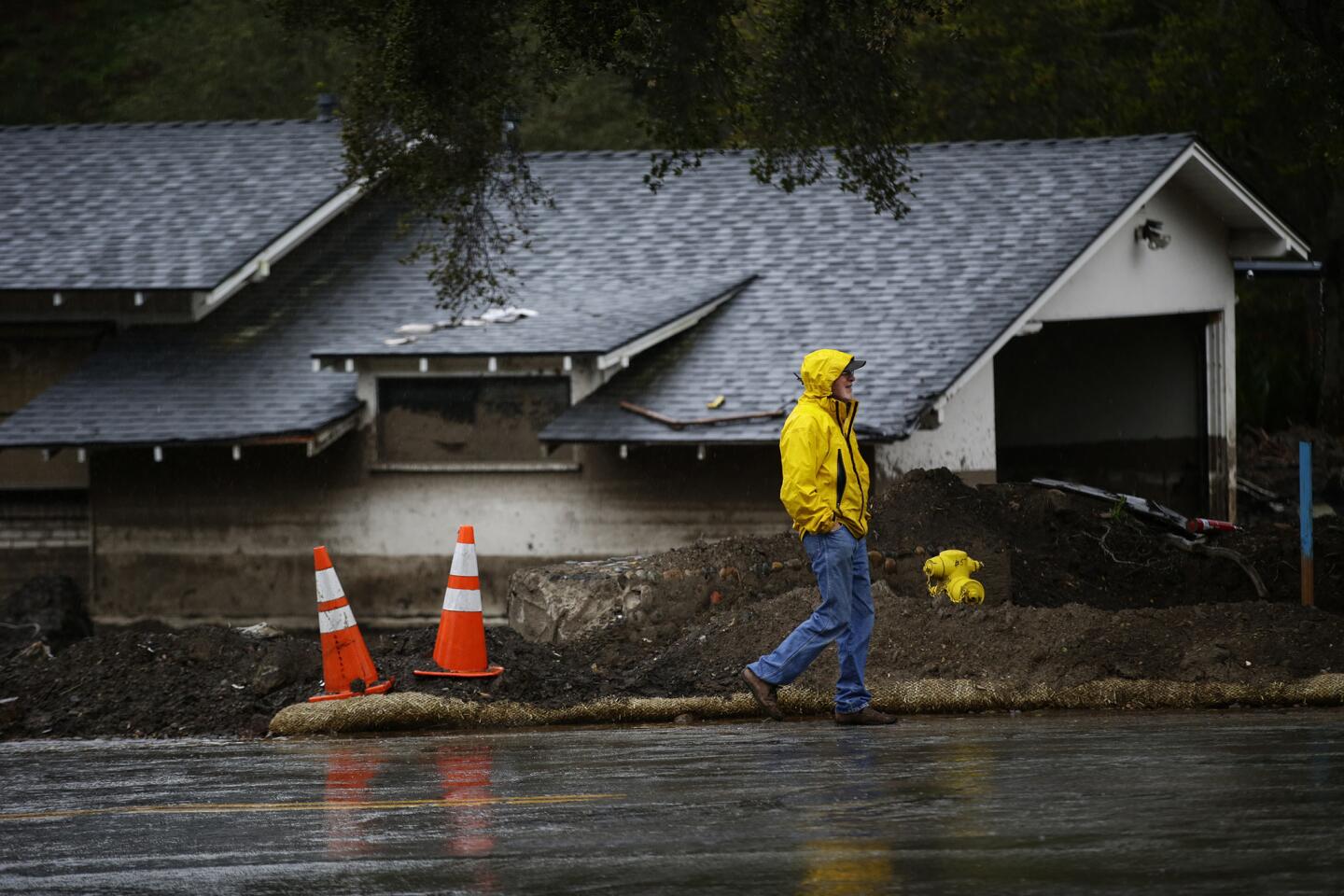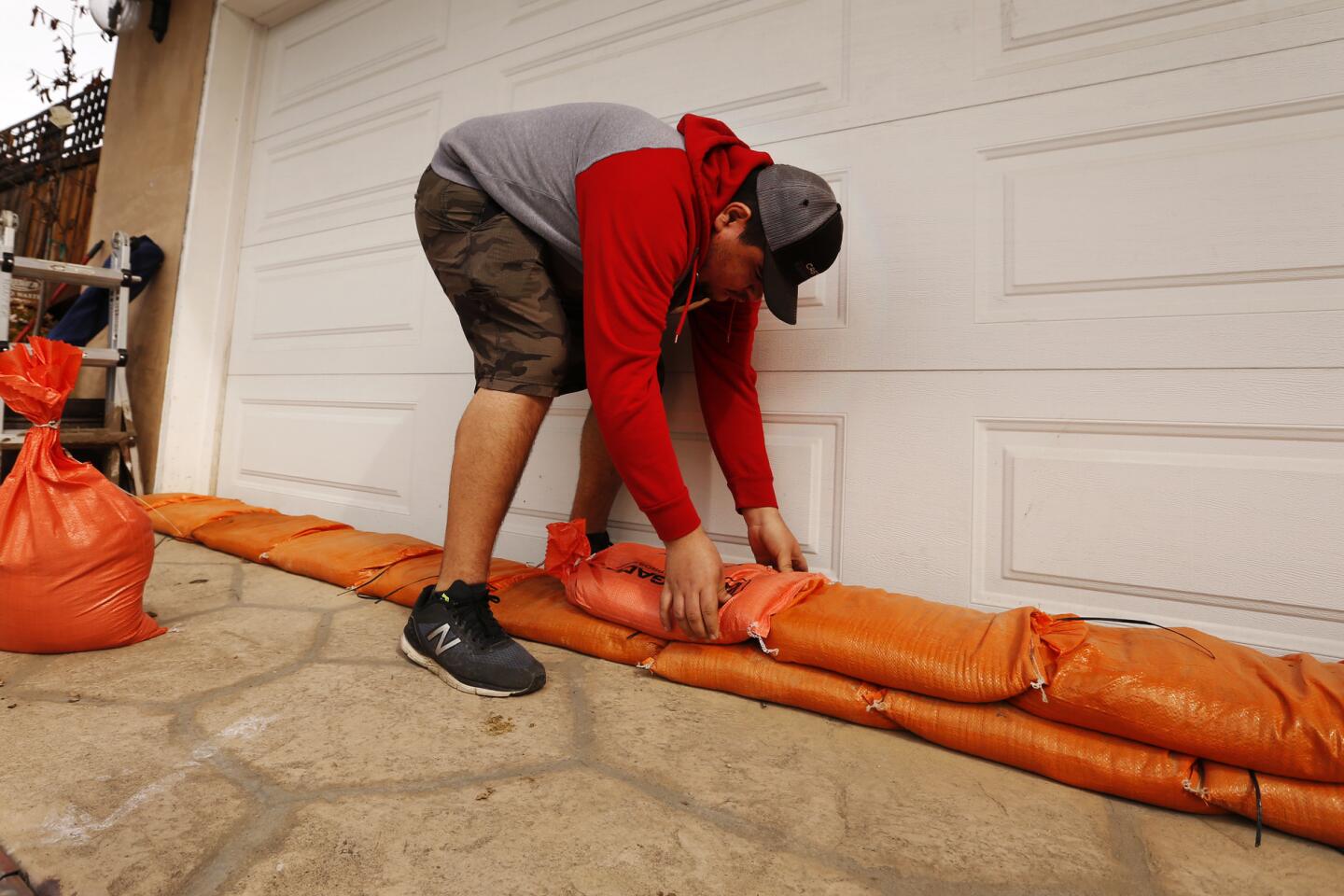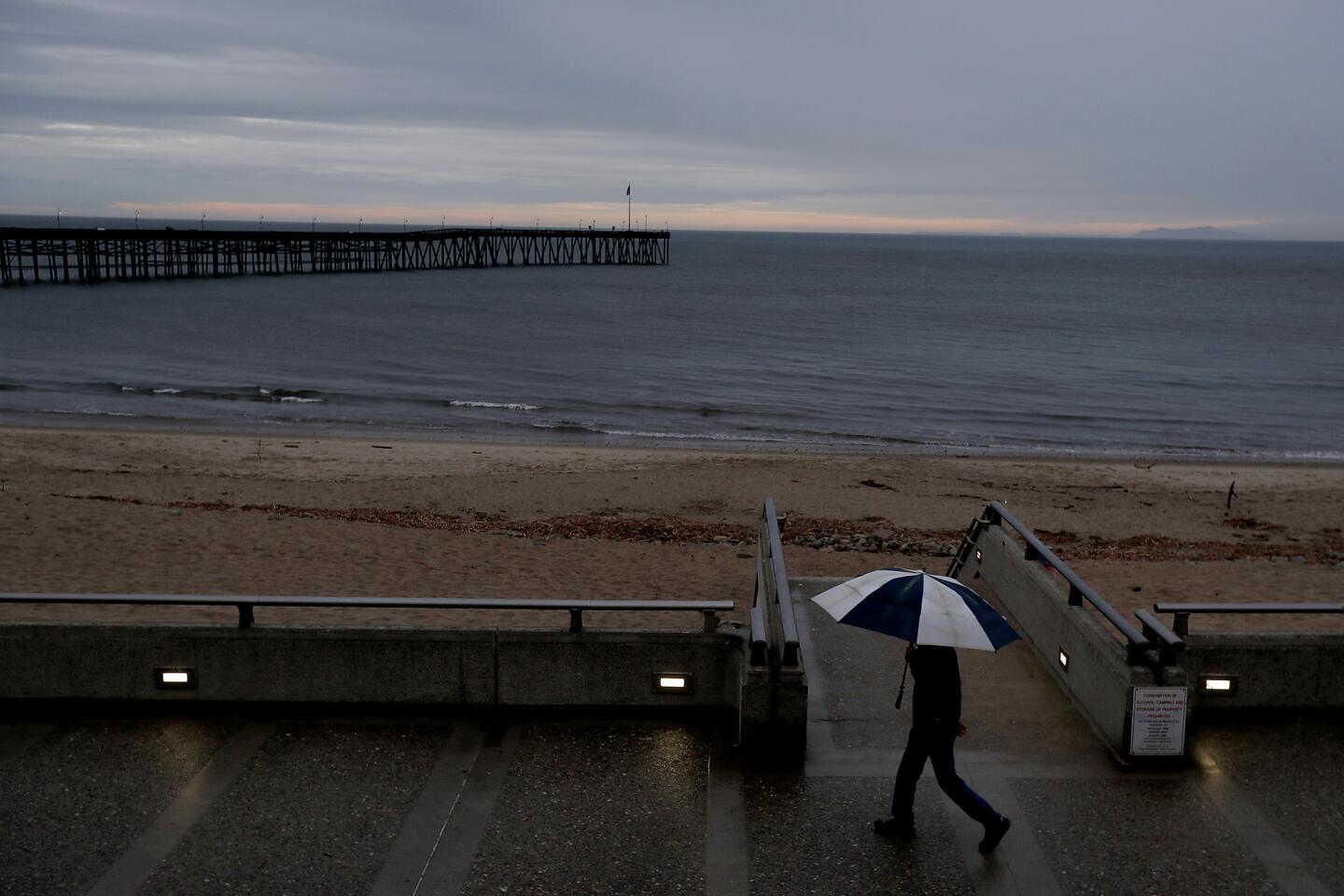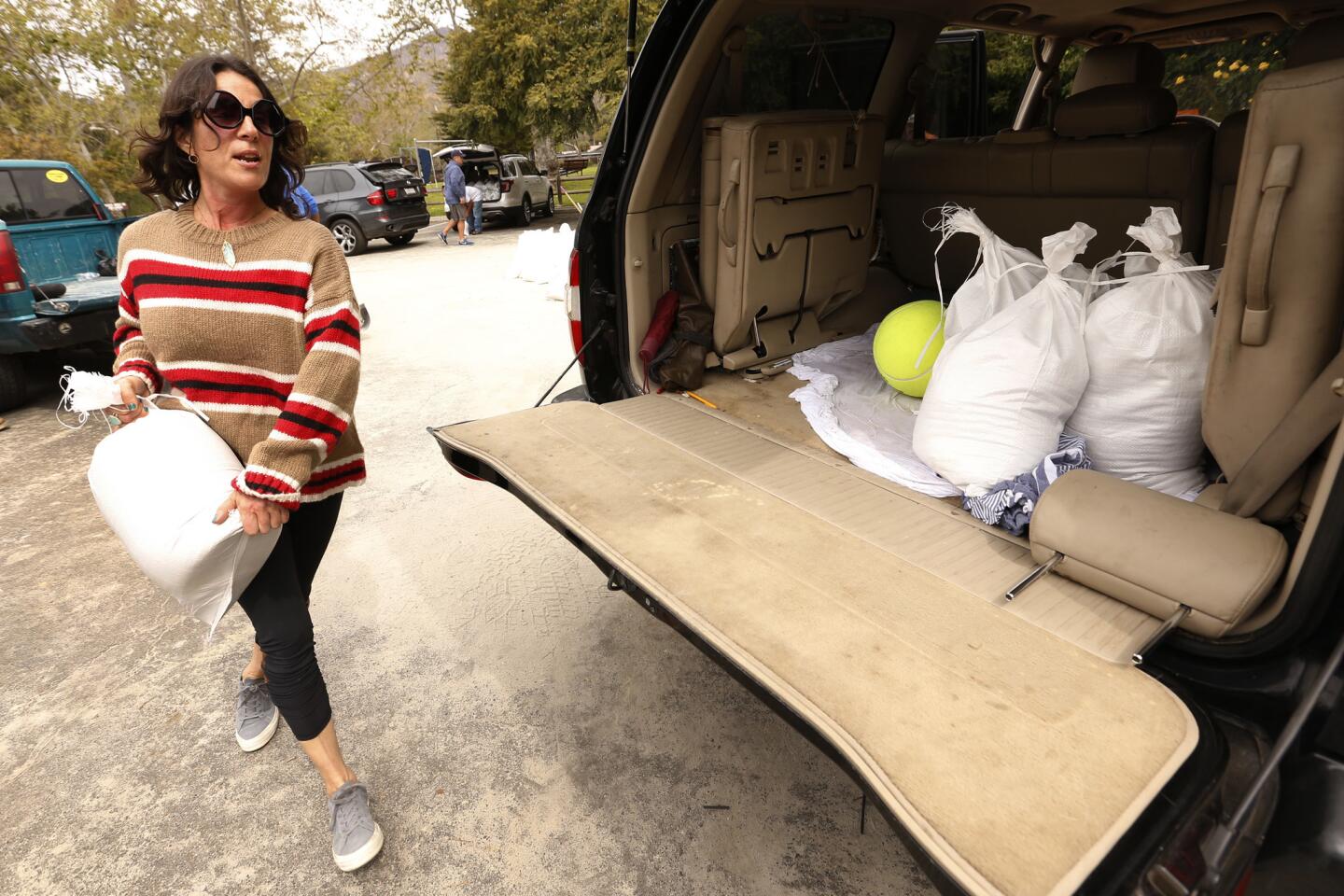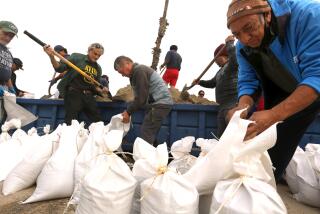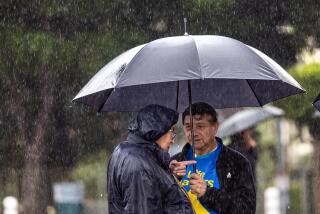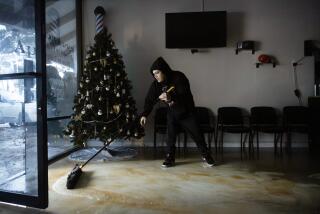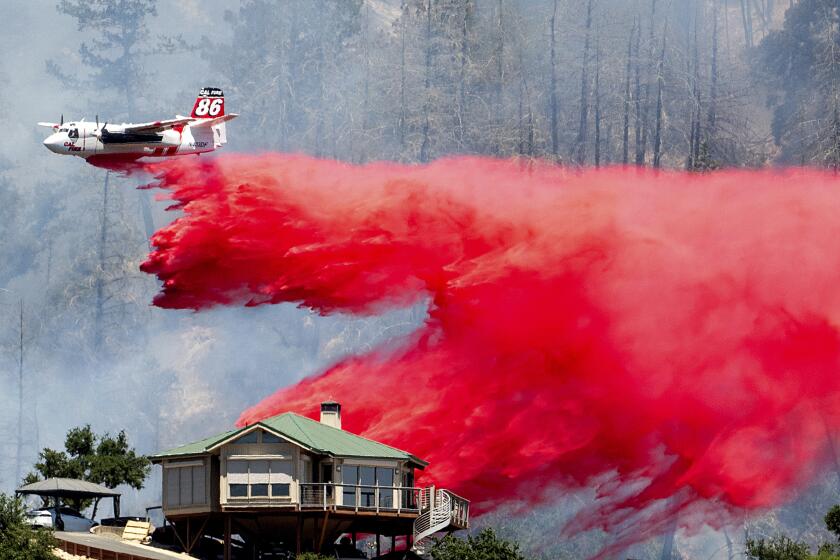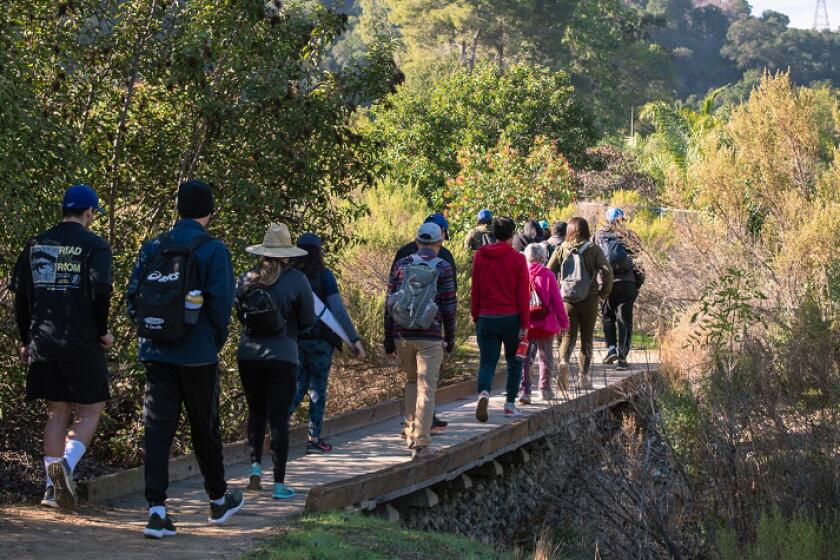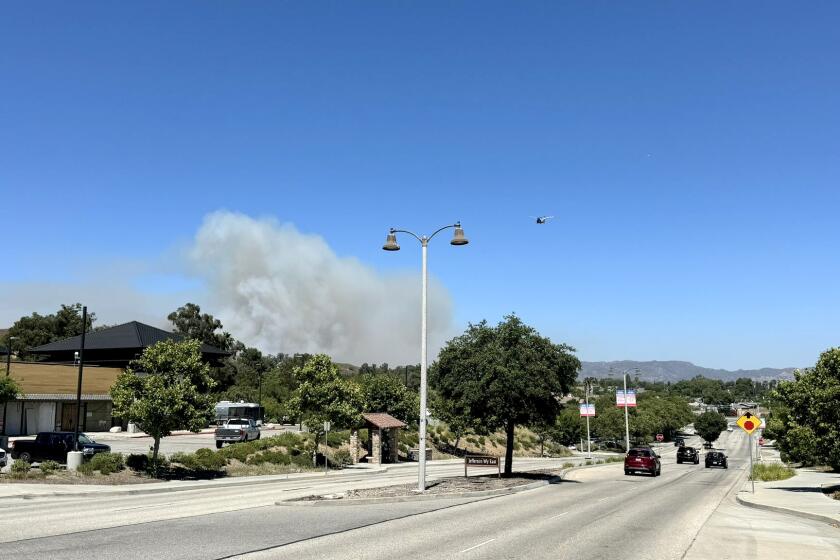Battered by fires and floods, beleaguered Montecito braces for more potential destruction

Mike Eliason, public information officer for the Santa Barbara County Fire Department, gives updates on flooding conditions in the area. (Video by Robert Gauthier and Al Seib / Los Angeles Times)
It started four months ago, when the largest fire on record in California history besieged this upscale coastal enclave.
Soon after, heavy rains sent tons of mud, boulders and debris crashing into Montecito neighborhoods — killing 21 people in what was the state’s deadliest flooding in decades.
Now, forecasters are predicting more trouble for the beleaguered town. The most powerful rainstorm of the year is expected to deliver a direct hit to areas burned in the Thomas fire, bringing with it fears of new destructive mudslides. Authorities have ordered about 21,000 residents in Santa Barbara County to flee, marking the sixth evacuation since December for some.
“I’ve gotten to the point where I just leave all my important documents in a zip-lock bag, ready to take at a moment’s notice,” said Montecito resident Ashley Mayfield.
She spent Tuesday morning checking off her to-do list: Take out the garbage, check the mail, pack the car. About 10 a.m., deputies came knocking.
“They’ve realized nowhere is safe and that we need to get out,” Mayfield said. “Evacuating is the fair thing for us to do. It’s not fair to put the lives of emergency responders at risk by staying.”
The storm, a bloated atmospheric river of tropical moisture known as a “pineapple express,” made landfall Tuesday night. By Friday, the system is predicted to have dumped 3 to 6 inches of rain along the coast and up to 10 inches in the mountains and foothills above Montecito, Carpinteria and Ojai.
It’s taking a “bull’s-eye shot” at Santa Barbara County, Ventura County and the Thomas fire burn scar, said Stuart Seto of the National Weather Service in Oxnard.
Robert Lewin, director of the Santa Barbara County Office of Emergency Management, said that “this storm is not the storm to question. This is a legitimate, hard-coming storm that has the potential to cause destruction. It has the potential to take lives.… Those mountains are locked and loaded with debris” that’s ready to come down.
By Tuesday afternoon, Santa Barbara County sheriff’s deputies had hit about 1,000 homes, urging people to leave.
“We know it is disruptive, costly and inconvenient,” Sheriff Bill Brown said. “We would not be making this decision without it being our belief that it is necessary to protect your safety.”
Roughly 2,400 Ventura County residents were also ordered to leave, while about 32,200 others there live in voluntary evacuation zones, said Deputy Chad Anderson of the Sheriff’s Department.
Many Montecito residents spent their last hours in town at grocery stores, filling shopping carts with water, bread, fruits and vegetables.
“We are very stressed,” said Gretchen Norqual, 68, as she loaded groceries into her Land Rover with her husband, Jack. They planned to pick up their two cats and head to a hotel.
Nearby, Richard and Colleen Stewart gassed up their car and reflected on how their lives have changed since Jan. 9, when mudflows damaged their home on Glen Oaks Drive and took the life of one of their neighbors.
The Canadian couple spend their winters in Montecito. This season has been marked by disaster after disaster.
“We have evacuation fatigue,” Richard Stewart said. “If we have to evacuate one more time, we will leave and go back to Canada.”
They are haunted by memories of smashed homes and cars crushed by boulders.
“We don’t drive on the main street to get to our house anymore,” he said. “It’s too difficult to look at the damage.”
Their dog, Sammy, was nestled in the back seat of their car by a handful of suitcases, pictures and other belongings.
Stewart and his wife decided to heed evacuation orders because of the constant communication — emails followed up by phone calls — from officials who stressed the potential danger.
By late Tuesday afternoon, the town was nearly empty.
The rain comes just months after the Thomas fire scorched more than 440 square miles of land, reducing thick forest and chaparral to ash and making steep hillsides susceptible to mud and debris flows.
Flash flood watches were issued in Santa Barbara and Ventura counties, where scorched hillsides will start to dissolve into mud flows if it rains at a rate of more than half an inch an hour, according to the U.S. Geological Survey.
Although there’s little potential for a once-in-200-year storm cell like the one in January that dumped half an inch of rain in just five minutes and triggered the deadly floods, this storm is worrisome because it will probably bring a long period of nonstop rain.
Seto said the storm could drop up to three-quarters of an inch of rain an hour for most of Wednesday afternoon and Thursday morning over the fire-scarred areas.
“Once those rain intensities start they could block the roads and they wouldn’t be able to leave,” Seto said. “That’s what’s different with mudslides. Once they hit their threshold, they’re going to go. They’re not going to wait and give you time to think about it.”
Lewin, of Santa Barbara County, said the storm could be intense enough to cause flooding even without the recent fires.
“We could experience localized flooding and road closures, which are not isolated to the burn areas,” he said. “The threat of rock falls, mudslides and debris flow is high.”
Etehad reported from Montecito, Serna and Tchekmedyian from Los Angeles.
melissa.etehad@latimes.com | Twitter: @melissaetehad
joseph.serna@latimes.com | Twitter: @JosephSerna
alene.tchekmedyian@latimes.com | Twitter: @AleneTchek
More to Read
Start your day right
Sign up for Essential California for news, features and recommendations from the L.A. Times and beyond in your inbox six days a week.
You may occasionally receive promotional content from the Los Angeles Times.
